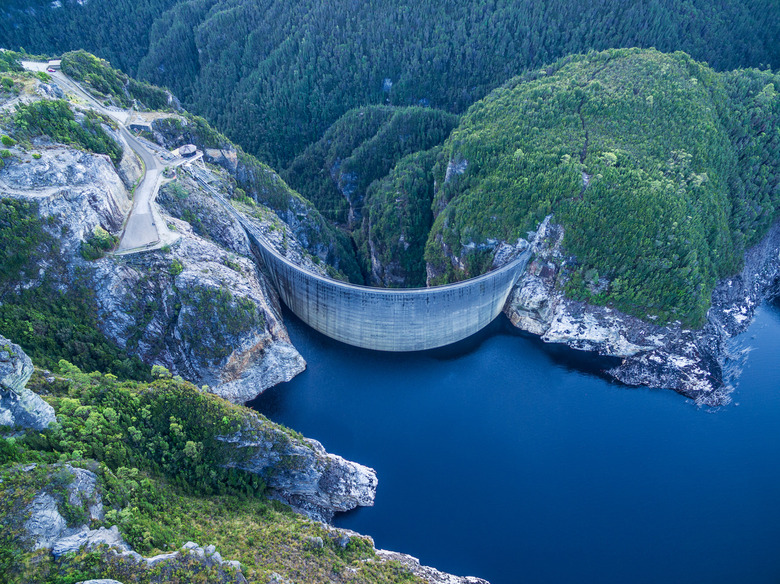Human Impacts On Freshwater Ecosystems
Fresh water biomes make up only one percent of the Earth's surface, but they provide a home for a disproportionate number of the world's species. However, the ecosystem of a freshwater lake or river can be extremely fragile, and human activities can be detrimental to their health in a number of ways: such as developing structures, diverting their flow, polluting them, and draining them of resources. In many ways, humans depend on freshwater ecosystems for survival, but their impact on these waterways can be devastating.
TL;DR (Too Long; Didn't Read)
Diversion, overuse, and pollution all contribute to the ways the humans harm freshwater systems.
Habitat Alteration Through Industry
Habitat Alteration Through Industry
Humans can alter or even destroy freshwater ecosystems through the construction of hydroelectric dams or irrigation projects. Dams create reservoirs of water while artificially limiting the flow of water downstream of the project, which can significantly change the ecosystem on both sides of the construction. Similarly, diverting water for irrigation can also reduce the available water for the region's wildlife and can alter the natural flow of water through the aquifer. Over time, these changes can lead to new ecosystems developing in the affected areas, but heavy disruptions to the natural balance lead to severe side effects.
Overuse of Water
Overuse of Water
Humans can have a major impact on freshwater systems through water overuse. The same waterways that support wildlife and plants also provide municipal water for cities and towns, and when consumption outstrips the natural regeneration of these waterways, it can negatively affect the ecosystem. Reducing the amount of water in lakes and other reservoirs puts pressure on aquatic populations, reducing the amount of living space available, and in some cases, it dries up streams and ponds entirely.
Chemical Runoff and Pollution
Chemical Runoff and Pollution
Freshwater ecosystems near towns and cities also face threats from runoff and pollution. Industrial dumping, particulate pollution from combustion engines, and agricultural fertilizers and pesticides, in many cases end up in rivers and streams, either falling there directly or carried to the waterways by rain. Particularly toxic pollutants may wipe out an ecosystem entirely, but even small amounts of less lethal compounds can have an effect on wildlife. Some of these toxic substances can even cause genetic mutations, altering the life cycle of fish, amphibians and other wildlife and causing birth defects that can destroy a population over time.
Wastewater Floods and Other Mishaps
Wastewater Floods and Other Mishaps
While municipal sewage plants and livestock operations release only treated water into the environment under normal circumstances, system failures and floods can trigger a release of untreated sewage into the water cycle. Depending on the particular toxicity of the spill, it may kill large numbers of wildlife, or it may only alter the nutrient balance in the water. This imbalance can trigger algae blooms, which can choke off a freshwater ecosystem by taking up all the oxygen available or even spurring the development of toxic organisms, including certain types of cyanobacteria, that can be deadly to wildlife and even affect humans.
Cite This Article
MLA
Kazmeyer, Milton. "Human Impacts On Freshwater Ecosystems" sciencing.com, https://www.sciencing.com/human-impacts-freshwater-ecosystems-23308/. 15 May 2018.
APA
Kazmeyer, Milton. (2018, May 15). Human Impacts On Freshwater Ecosystems. sciencing.com. Retrieved from https://www.sciencing.com/human-impacts-freshwater-ecosystems-23308/
Chicago
Kazmeyer, Milton. Human Impacts On Freshwater Ecosystems last modified August 30, 2022. https://www.sciencing.com/human-impacts-freshwater-ecosystems-23308/
